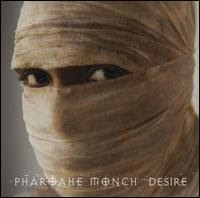 St. Vincent
St. VincentMarry Me
Beggar's Banquet
2007
Rating: Proposals from beautiful woman are very hot. Especially when phrased not as questions, but as commands.
St. Vincent is Annie Clark. Annie Clark has played group member to Sufjan Stevens and the Polyphonic Spree. She has also been compared to Kate Bush. This doesn't make much sense to me because A) I don't like Kate Bush, and B) that's all I've got.
I hate hate hate comparing rock artists to other, usually more well-known, rock artists. It's generally just lazy, and specifically it's dumb shorthand that only exists in a world where people in suits decide who gets recorded/distributed and who doesn't. In this DIY internet age, we're supposed to be beyond that, right? But we still do it. And by we, I mean I still do it. Because A) I am lazy, and B) I love dumb shorthand. Or is that I{>DSH?
Of course it defeats the purpose when I write it out in both shorthand and longhand. Especially considering I don't get paid to write these reviews, let alone paid by the word. But I digress.
St. Vincent sounds like a cross between ree-ree guitar-land, the lost continent of infamous hand-claps, lush-yet-off-kilter string-town and buddha buddha drum-city. Plus, I like her much better than Kate Bush. Prepare yourself accordingly, because there's quite a bit of stuff going on during Annie Clark's solo debut; Marry Me is a rude marriage of sorts between several indie rock streams from the past few years. It's idiosyncratic, multi-instrumental, quasi-symphonic, occasionally choral, vocally distinct and varied in tempo and tone. In other words, it's packed.
"Jesus Saves, I Spend" is a perfect example. Multi-tracked vocals, inventive drumming, clever song-writing, weird kid and/or high pitched singing, powerful-good guitar riffs, and sleigh bells. But don't think this is Sufjan's XX twin. Because that's a dumb thought. Shame on you and your dumb thought. Remember, we're trying our best not to compare here.
"Your Lips Are Red" is more of the same, only more intense and kind of scary. Screeching string sections denote something is amiss, if I understand my Musical Composition for Dummies manual correctly, and for three minutes this is a really eerie track. But somewhere along the way, it turns really sweet. It's nice to know that Annie Clark is something of a romantic, and she displays those chops over the course of Marry Me quite prominently.
"All My Stars Aligned" is nearly the prettiest girl at the ball. Over tinkling piano keys and what may or may not be a keyboard-produced choir, Clark puts on a show that basically makes me want to propose marriage right back at her. And it helps that she's a damnably fetching young lady. After her only sort-of-boring track ("Apocalypse Song") and a brief piano interlude, she strikes again with "Land Mines," an intense and altogether exquisitely crafted piece that moves from torch to adult contemporary to low-fi symphony to Björk-like heights in just over five minutes.
The last two tracks, "Human Racing" and "What Me Worry" sort of live by a different set of rules than the rest of the album, setting up a jazzy sound that hearkens to what Norah Jones might be doing where she mildly addicted to crack. Note: just mildly addicted. Possibly: more like P.J. Harvey on uppers. Regardless, it's really bewitching stuff, and a nice change of pace from the rest of Marry Me. And if we're lucky, maybe a hint of things to come when Annie Clark gets around to recording again.
Marry Me is one solid piece of freshmen songwriting, and you will most assuredly fail to find a stronger debut solo album in Anno Domini 2007. I can't seem to find the correct words to compliment Ms. Clark sufficiently, other than this is a devastatingly handsome debut.
And, IMHO, much better than Kate Bush.
iLoveStVincent.com
St. Vincent on MySpace
An alternate rendition of St. Vincent's
"Your Lips Are Red"
"Your Lips Are Red"



